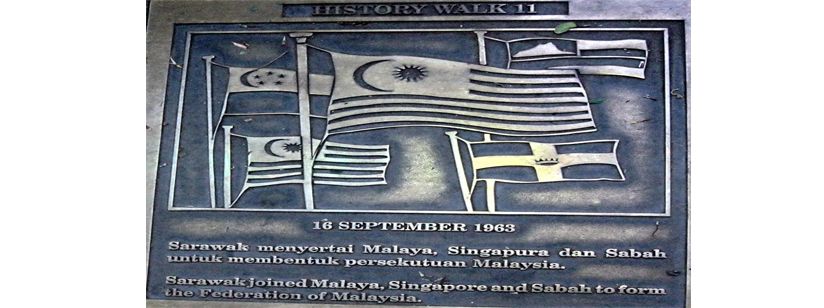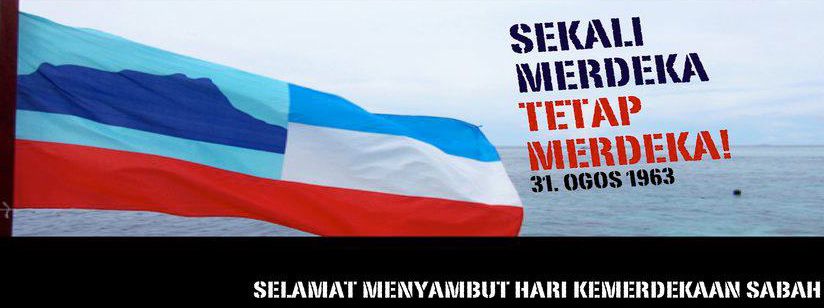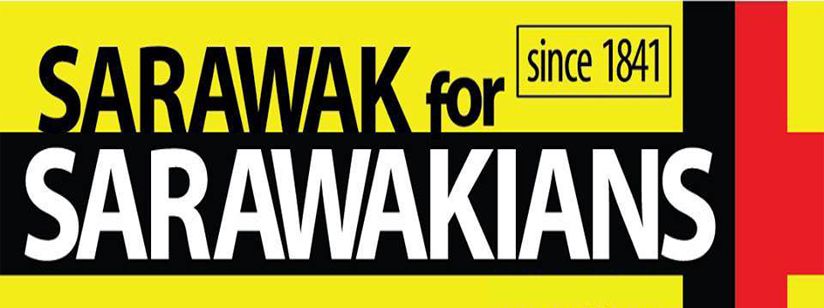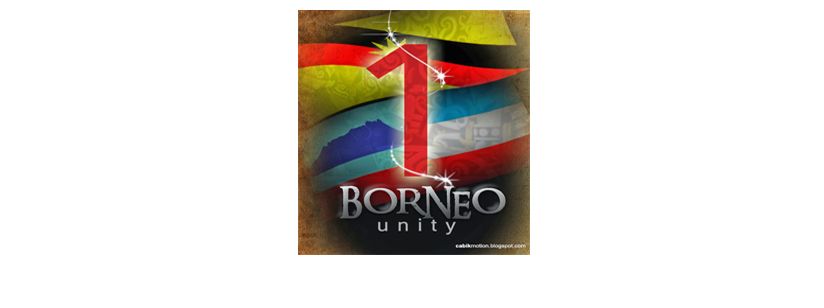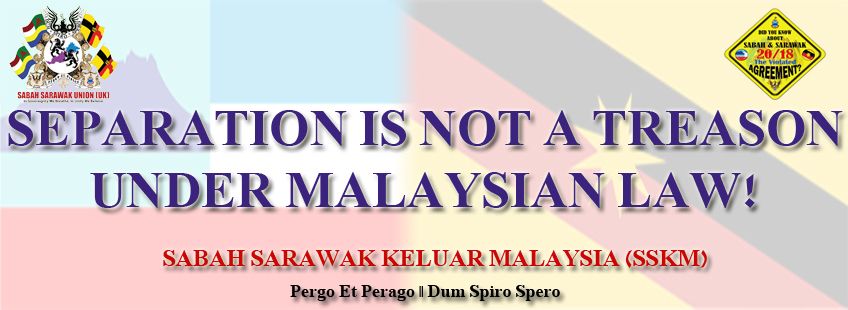KEBENARAN TETAP UTUH
Tuesday, 16 December 2014
Tuesday, December 16, 2014
18 Points
,
20 Points
,
Agreement of Malaysia
,
Doris Jones
,
Exposing the Truth
,
Fact
,
Federation of Malaysia 16 September 1963
,
Malaysian.
,
MIA
,
Sabah
,
Sarawak
,
SSKM
5
comments
Perjuangan SSKM
"Kalau setakat menyedarkan Rakyat Negara Sarawak dan Rakyat Negara Sabah melalui Facebook, ia tidak akan ke mana...", sebenarnya merupakan satu kenyataan yang dibuat tanpa sebarang siasatan ataupun kajian.
Group SSKM ini yang pada mulanya setakat "takkan ke mana" ini telah berkembang daripada "Open group" yang kecil, kemudian membentuk "Closed" group dan tetap utuh berkembang sehingga ke hari ini. Group lama SSKM telah di "HACKED" dan kini berpindah ke Group Baru tetap berjaya dan juga apa yang disebarkan semakin kuat dihati rakyat Negara Sarawak dan juga rakyat Negara Sabah khususnya dikalangan Generasi Muda. Ini kerana masa depan adalah ditangan golongan ini.
KEBENARAN TETAP UTUH
KEBENARAN TETAP UTUH
Warga Negara Sarawak dan Negara Sabah, hari ini semakin banyak yang telah sedar akan hak mereka kerana SSKM yang pada tahun 2011 hanyalah group yang dianggap "omongan kosong" (borak kosong) telah berjaya menarik hati Generasi Muda di kedua-dua Negara Borneo untuk menyangangi kembali Negara mereka iaitu Negara Sarawak dan Negara Sabah.
Kami yang sudah lama berada bersama SSKM dari zaman awal penubuhannya, melihat betapa derasnya orang luar mahu memfitnah dan menjatuhkan usaha murni SSKM tapi SSKM tetap utuh dan kukuh sehinggalah misi dan objektifnya tercapai. Makin banyak anak watan Negara Sarawak dan Negara Sabah yang semakin mendapat banyak maklumat sebenar sejarah tanah air negara mereka masing-masing yang tidak mungkin diajar mahupun didedahkan oleh Kerajaan Persekutuan Malaya yang telah menyamar menjadi Kerajaan Persekutuan Malaysia untuk satu tempoh yang lama iaitu 51 tahun.
Group yang telah berkembang lagi maju wujud selepas munculnya SSKM. Sebelum SSKM, ada juga group begini tapi tidak berjaya menarik perhatian dan sokongan Generasi Muda. Tetapi dalam SSKM, kami bukan berhujah kosong, tapi disokong dengan bukti yang berfakta. Tiada kaitan dengan mana-mana parti politik seperti group yang lain yang hanya memperjuangkan politik mereka kerana mereka rasa dengan politik mereka, Negara Sarawak dan Negara Sabah boleh merdeka.
SSKM berpegang pada perjuangan membawa segenap pelusuk rakyat Negara Sarawak dan Negara Sabah untuk merdeka. Tiada halangan dari segi politik dan agama mahupun etnik. SSKM mahukan semua orang SEDAR bahawa didalam mereka mengejar matlamat parti, matlamat sebenar yakni MERDEKA kita semakin disisih dan dipinggirkan.
By Muhammad Amirul Ismail
Tuesday, December 16, 2014
20 Points
,
Doris Jones
,
History
,
North Borneo
,
Sabah
,
Sarawak
,
SSKM
No comments
Sejarah yang tidak di "Sejarah" kan dalam Buku Sejarah Sekolah
 |
| Credit to : Pengerindu.com |
Sesungguhnya inilah realiti yang berlaku di sekolah rendah, menengah, kolej mahupun di universiti awam/swasta. Kebenaran yang berusaha untuk disembunyikan agar ia tidak diketahui oleh Generasi Muda Negara Sabah, Negara Sarawak dan termasuk malaya. Apakah kebaikan untuk berbuat demikian?
Ini adalah bertujuan untuk mengelak tindakan kotor mereka (pemimpin malaya) dihidu yang telah menurunkan status "Negara" Sabah dan "Negara" Sarawak sebagai hanya berstatus "negeri". Ini juga adalah untuk mengelak konsep federasi ataupun persekutuan asal itu diketahui umum kerana ia mampu untuk menyekat mahupun menghalang niat mereka untuk menguasai sosial, ekonomi dan politik Bangsa Negara Sabah dan Bangsa Negara Sarawak.
Dengan mengetahui kebenaran, akan terbongkar kudis hina dan perbuatan terkutuk pemimpin dan kerajaan malaya selama ini kepada Bangsa Negara Sabah dan Bangsa Negara Sarawak.
Untuk menghangatkan lagi pemahaman ini, sila bantu untuk senaraikan segala perbuatan terkutuk pemimpin dan kerajaan malaya terhadap Bangsa Borneo, Bangsa Negara Sabah dan Negara Sarawak...
Terjaga Tetapi Terkeliru...
Sarawak Untuk Sarawakian
Dua kalimah keramat itu seringkali dilaungkan senada dengan kebangkitan rakyat Negara Sabah dan Negara Sarawak. Kita telah bangun daripada lena yang panjang. Kita juga telah mula menolak "gula-gula" yang dihulur oleh pemerintah. Kita senada, sehati, sejiwa dan bergerak sama langkah untuk menolak pemerintahan Barisan Nasional. Barisan Nasional sudah terlalu lama memerintah negara dan selama pentadbiran mereka, BN sentiasa memperbodohkan masyarakat Negara Sabah dan Negara Sarawak. Bahkan pemimpin Negara Sabah dan Negara Sarawak cuma berperanan sebagai boneka dan bersikap pengecut.
Justeru itu, SSKM yang diketuai oleh saudari Doris Jones berperanan penting sebagai satu batu loncatan untuk mengemblengkan seluruh tenaga dan buah fikiran bijak pandai Negara Sabah dan Negara Sarawak, bagi menyokong Gerakan Pembebasan Borneo. Malahan saudari Doris Jones sendiri bergadai tenaga untuk membawa isu ini ke House of Lords, Westminster Parliament di London, UK. Ini adalah bukti yang teramat jelas dan sebagai satu WARNING kepada kerajaan malaysia, bahawa rakyat Negara Sabah dan Negara Sarawak mahukan kebebasan untuk memerintah Tanah Air sendiri.
.jpg) Sekian lama, sejarah Negara Sabah dan Negara Sarawak terpadam dari tinta sejarah negara. Malahan, banyak perkara tersembunyi telah dilakukan oleh pemimpin-pemimpin BN terdahulu sehingga kini untuk mengawal tindak-tanduk masyarakat Negara Sabah dan Negara Sarawak. Bahkan, mereka mencabuli perkara 18/20 sewenang-wenangnya tanpa memikirkan hati dan perasaan penduduk Borneo. Daripada segi agama, mereka banyak kali mempersoalkan cara anutan Kristian seperti isu penyebaran agama Kristian dan isu kalimah Allah, di mana Negara Sabah dan Negara Sarawak sentiasa menerima tempias isu-isu tersebut. Padahal, isu-isu agama di malaya sepatutnya tidak membabitkan tanah Borneo selari dengan perkara 18/20 yang telah lama termetrai.
Sekian lama, sejarah Negara Sabah dan Negara Sarawak terpadam dari tinta sejarah negara. Malahan, banyak perkara tersembunyi telah dilakukan oleh pemimpin-pemimpin BN terdahulu sehingga kini untuk mengawal tindak-tanduk masyarakat Negara Sabah dan Negara Sarawak. Bahkan, mereka mencabuli perkara 18/20 sewenang-wenangnya tanpa memikirkan hati dan perasaan penduduk Borneo. Daripada segi agama, mereka banyak kali mempersoalkan cara anutan Kristian seperti isu penyebaran agama Kristian dan isu kalimah Allah, di mana Negara Sabah dan Negara Sarawak sentiasa menerima tempias isu-isu tersebut. Padahal, isu-isu agama di malaya sepatutnya tidak membabitkan tanah Borneo selari dengan perkara 18/20 yang telah lama termetrai.
Begitu juga dengan perkara 8, Borneonisation, di mana pada masa sekarang, sepatutnya penjawat awam di Negara Sabah dan Negara Sarawak diketuai oleh orang-orang tempatan dan bukan pegawai dari malaya. Malangnya pada sesi soal jawab parliamen baru-baru ini, masih terdapat lebih 30 peratus penjawat awam Negara sabah dan Negara Sarawak yang masih lagi dikuasai oleh orang dari malaya. Malahan usul untuk mengkaji perjanjian malaysia oleh MP Penampang, Darell Leiking telah ditolak mentah-mentah seolah-olah tiada ruang dan peluang untuk suara kita berkumandang di parliamen malaysia.
Sebab itulah, mengapa rakyat Negara Sabah dan Negara Sarawak sudah reti untuk menzahirkan rasa benci dan dendam terhadap keseluruhan pimpinan BN. Rakyat mula berdiskusi/berbincang secara ilmiah dan professional untuk bersatu menolak regim BN dan sekutu-sekutu mereka. Jika kita menolak BN, jadi parti apakah yang kita akan undi selepas itu? Senang sahaja bagi yang masih kurang faham tentang erti sebenar perjuangan SSKM, undi mereka akan beralih kepada Pakatan Rakyat. PR baru-baru ini sudah mula memancing hati penduduk borneo. DAP, PKR dan juga PAS sudah mula menawarkan "bantuan" untuk mengembalikan hak hak borneo termasuklah royalti minyak.
Jika ada yang tertipu, maka golongan inilah diantara "pengkhianat" perjuangan SSKM yang terkeliru. Ideologi SSKM ialah mahu Negara Sabah dan Negara Sarawak berupaya memerintah sendiri ataupun mempunyai kuasa autonomi sepenuhnya. Jika mahu mencapai hasrat itu, satu perkara penting yang mesti orang Borneo ketahui, kita mesti menolak kesemua parti politik daripada malaya. Jika tidak, kita boleh diumpamakan seperti keluar dari mulut harimau, masuk pula ke dalam mulut buaya dan perjuangan SSKM akan menjadi sia-sia. Biarpun, kita belum pernah diperintah PR, tiada sebab untuk kita membazir masa semata-mata mahu mencuba nasib.
Buat masa ini, lagi bijak jika penduduk borneo cuma memangkah parti yang memperjuangkan hak hak Negara Sabah dan Negara Sarawak ataupun mana-mana parti yang tidak dipengaruhi oleh ideologi parti daripada malaya. Sebagai contoh, bolehkah kita memangkah undi untuk pemimpin BN yang menyuarakan sokongan terhadap perjuangan SSKM? Jawapannya, tidak boleh! Jika kita masih memberi undi kepada mereka, kita seperti masih mahukan BN menang dan memerintah. Jika benar mereka mahu berjuang bersama kita, mengapa mereka tidak keluar daripada parti BN yang tidak menghormati ketinggian nilai perkara 18/20?
 Bagaimana pula dengan mengundi PR? Pendapat peribadi saya mengatakan, dengan memberi undi kepada PR, kita seolah-olah mencipta sebuah jalan yang samar samar. Secara rasionalnya, PR tidak akan membantu kita untuk menjadikan Sabah dan Sarawak sebagai sebuah Negara. Mereka cuma boleh membantu kita dari segi royalti minyak. Kesimpulannya, buat apa mereka mahu membantu kita, jika satu hari nanti, jika mereka memerintah, mereka akan kehilangan besar sumber kewangan yang selama ini kita telah sumbangkan dari tanah Borneo in. Jadi, kita patut memberi undi kepada Parti Tempatan jika tiada pilihan lain. Parti STAR adalah antara parti tempatan yang patut diberi peluang. Buat masa sekarang, ideologi mereka masih lagi senada dengan misi SSKM dan memberi peluang kepada parti tempatan, ini bermaksud kita boleh "membeli" masa untuk SSKM mengumpul petition yang secukupnya sebelum SSKM membawa misi ini ke peringkat yang lebih tinggi.
Bagaimana pula dengan mengundi PR? Pendapat peribadi saya mengatakan, dengan memberi undi kepada PR, kita seolah-olah mencipta sebuah jalan yang samar samar. Secara rasionalnya, PR tidak akan membantu kita untuk menjadikan Sabah dan Sarawak sebagai sebuah Negara. Mereka cuma boleh membantu kita dari segi royalti minyak. Kesimpulannya, buat apa mereka mahu membantu kita, jika satu hari nanti, jika mereka memerintah, mereka akan kehilangan besar sumber kewangan yang selama ini kita telah sumbangkan dari tanah Borneo in. Jadi, kita patut memberi undi kepada Parti Tempatan jika tiada pilihan lain. Parti STAR adalah antara parti tempatan yang patut diberi peluang. Buat masa sekarang, ideologi mereka masih lagi senada dengan misi SSKM dan memberi peluang kepada parti tempatan, ini bermaksud kita boleh "membeli" masa untuk SSKM mengumpul petition yang secukupnya sebelum SSKM membawa misi ini ke peringkat yang lebih tinggi.
Note:
1. Gambar kedua diambil dari FB saudari Doris Jones.
2. Sila lapangkan diri untuk sign petition: http://www.gopetition.com/petitions/sabah-sarawak-rights/sign.html
Tuesday, December 16, 2014
Constitutional
,
Federation of Malaysia 16 September 1963
,
Sarawak
,
SSKM
No comments
Constitutional change in sarawak 1963-1988: 25 years as a state within the federation of Malaysia
Introduction
When Sarawak joined the Federation of Malaysia on 16 September 1963, it was a secular state with its own constitution, which was integrated into the Federation's constitution, with provisions and exceptions to reflect the special rights of Sarawak within the Federation. This article seeks first to provide the background on how Sarawak's constitution came to be and how it was developed to enable self-government as an independent state just prior to Sarawak joining the Federation. Second, it seeks to investigate the amendments made to the Federation's constitution during Sarawak's first twenty-five years within the Federation that altered or detracted from Sarawak's rights. All this is based on the premise that a constitution embodies "the fundamental political principles of a state."
When Sarawak joined the Federation of Malaysia on 16 September 1963, it was a secular state with its own constitution, which was integrated into the Federation's constitution, with provisions and exceptions to reflect the special rights of Sarawak within the Federation. This article seeks first to provide the background on how Sarawak's constitution came to be and how it was developed to enable self-government as an independent state just prior to Sarawak joining the Federation. Second, it seeks to investigate the amendments made to the Federation's constitution during Sarawak's first twenty-five years within the Federation that altered or detracted from Sarawak's rights. All this is based on the premise that a constitution embodies "the fundamental political principles of a state."
(1) Historical background From 1476 to 1841 the northwest coast of Borneo comprising the present state of Sarawak was part of the independent Malay Sultanate of Brunei, with indigenous native groups practicing forms of animism and maintaining their own cultures and languages. On 24 September 1841, Raja Muda Hashim granted James Brooke tutelage over Sarawak Proper and James was proclaimed Rajah of Sarawak in Brunei on 1 August 1842.
(2) A century of independence for aterritorially-expanding secular Sarawak under Brooke rule followed, (3) during which, in addition to pre-existing Islam and animism, virtually all other major religions became firmly established through Chinese, European, and Indian immigration and missionaries. (4) English and Malay were widely used by the administrative officers, and by usage English became the accepted official language.
(5) Sir Charles Vyner Brooke, the third Rajah, proclaimed Sarawak's first written constitution on 24 September 1941, ending a century of Brooke sole sovereignty. (6) The first clause of the proclamation bound the Rajah and his heirs or successors "to ensure that our beloved subjects shall ultimately enjoy their inherent right to control their own lives and destinies." Under the constitution, almost complete authority was transferred to the executive--the Supreme Council of no less than five members, and the legislature--the Council Negri with twenty-five members.
(7) Other than Cardinal Principle 7 stipulating that "Subjects of whatever race or creed shall be freely and impartially admitted to offices in Our Service," religions or religious beliefs are not mentioned in the 1941 Constitution, consistent with Brooke rule of Sarawak as a secular state. The constitution envisaged Sarawak continuing as an independent sovereign state, but with Britain responsible for defense and foreign affairs in accordance with the 1888 and 1941 bilateral treaties.
(8) With the arrival of the Japanese on 25 December 1941, Sarawak came under military administration which worked to some extent through those community leaders willing to cooperate, with Japanese becoming the de-facto official language. After liberation on 11 September 1945, the state came under Allied military administration until 15 April 1946, when the re-commencement of civil government under the 1941 constitution was proclaimed.
(9) Sarawak's Legislative List: Muslim Law, Native Law and Customs, land, agriculture and forestry, local government and services, electricity, state works and water, state machinery, state holidays, turtles and riverine fishing. Concurrent Federal and Sarawak Legislative List: social welfare, scholarships, national parks, animal husbandry, town and country planning, public health and sanitation, and drainage and irrigation. The Council Negri passed the first amendments to the Sarawak Constitution by the required two-thirds majority on 25 June 1964. One of these enabled another person to perform the functions of the Speaker should the latter be unable to do so. The other removed the impractical stipulation that indirect elections be held within 60 days in all situations. Opposition Council Negri member Chart Siaw Hee claimed the amendment showed that the State Government had no intention of holding a direct election before 16 September 1968, the latest date given in the IGC Report. Initially, direct elections were to be held in 1967, but setting up new electoral boundaries each with approximately the same number of voters delayed the projected date of elections until May 1969.
(20) To prolong the life of the Council Negri due to be dissolved in September 1968, the Federal constitution had to be amended. For this, the [Federal] Constitution (Amendment) Act, 1968 was enacted. During the debate on this act in the Dewan Rakyat (House of Representatives), on 21 August Stephen Yong Kuet Tze, Secretary-General, Sarawak United People's Party (SUPP), suggested that the Federal Government had deliberately delayed delimiting constituencies and registering voters because it feared defeat at the polls. Criticizing the wording of the amendment, Yong took the opportunity to say that "if the arbitrary arrest and detention of [his SUPP colleague] SUPP member Chan Siaw Hee ... was in accordance with the law, then let us see [whether] the proposed amendment ... is also in accordance with the law."
(21) Polling finally began on 10 May 1969. Five days later polling was suspended, following a proclamation of emergency over racial riots that broke out in Kuala Lumpur on 13 May 1969.
(22) An appeal by a man sentenced to death for possessing firearms in 1969 led to an interesting ruling by the Federal Court on the Federal Constitution. On 21 August the Court ruled that the Dewan Rakyat had the power to make constitutional amendments, even if those amendments were inconsistent with existing provisions in the constitution. Lord President Tun Mohamed Suffian said many provisions in the constitution showed that it was intended to be a living document, which, if the need arose, could be amended in any way thought fit. His comments were put to the test in 1983 when the Dewan Rakyat was forced to reverse some constitutional amendments already approved before Royal assent would be given.
(22) An appeal by a man sentenced to death for possessing firearms in 1969 led to an interesting ruling by the Federal Court on the Federal Constitution. On 21 August the Court ruled that the Dewan Rakyat had the power to make constitutional amendments, even if those amendments were inconsistent with existing provisions in the constitution. Lord President Tun Mohamed Suffian said many provisions in the constitution showed that it was intended to be a living document, which, if the need arose, could be amended in any way thought fit. His comments were put to the test in 1983 when the Dewan Rakyat was forced to reverse some constitutional amendments already approved before Royal assent would be given.
The Federal Constitution (Amendment) Act 1983 passed by the Dewan Rakyat in August 1983 contained some controversial amendments that curtailed the powers of the head of state, the Yang di-Pertuan Agong. These amendments were: Article 150 (l) that transferred the power to proclaim an emergency from the Agong to the Prime Minister; Article 66 (5) that made a Federal bill law if the Agong's assent had not been given after 15 days; and 8th Schedule 11(3) that made a state bill law if [in Sarawak's case] the governor's assent had not been given within 15 days.
(29) Royal assent was withheld until 15 December after Prime Minister Dr. Mahathir gave a written undertaking that a new bill would reverse those amendments. A special joint session of the Dewan Negara (Senate) and the Dewan Rakyat (House of Representatives) approved the Constitution (Amendment) Act 1984 that reversed the contentious amendments and the Act received Royal assent on 19 January. All the other amendments in the 1983 Act remained, including another of direct relevance to Sarawak, the abolition of appeals in civil cases to the Privy Council in Britain. That connection was finally severed at the beginning of i 985 when the Federal Court was renamed the Supreme Court and all remaining appeals to the Privy Council were abolished.
Comments
Both Sarawak and Sabah had a well-developed sense of identity and individuality before both agreed to become part of the Federation of Malaysia. Their different ethnic, economic, and religious mix, and their past histories compared with the states of Malaya, coupled with their distance from the federal capital, Kuala Lumpur, were all sources of friction when those states became part of the Federation. The special safeguards and conditions given to Sarawak and Sabah, such as control over education, immigration, and land, enabled both states to retain much of their own identity, without being completely overwhelmed by the mores of mainland Malaysia. However, those safeguards came under pressure from time to time and were indeed completely overridden during the 1966 Ningkan crisis.
Easier relationships were established post-1966 after state governments in the image of the ethnic Malay Muslim-dominated Federal Government had been installed. This muted resistance to the special status of Malays and Indigenes embodied in the Constitution helped to overcome serious opposition to changing the official language from English to Malay. it also enabled the Federal parliament to provide special financial aid for Muslim institutions and instruction in Islam to Muslims in Sarawak without the consent of the governor of Sarawak, removing the need for a two-thirds majority in the Council Negri to approve any bill controlling or restricting propagation of any doctrine or belief to Muslims.
By 1988 the basic tenets of the Federation of Malaysia, Malay as the national language and the pre-eminence of Islam, had been firmly entrenched in Sarawak by amendments to the 1963 constitution. Federal power to alter the constitution unilaterally had been established and Sarawak had been completely integrated as a state within the Federation of Malaysia. 95D. Exclusion for Borneo States and Singapore of Parliament's power to pass uniform laws about land or local government.
In relation to a Borneo State and in relation to Singapore Clause (4) of Article 76 shall not apply, nor shall paragraph (b) of Clause (1) of that Article enable Parliament to make laws with respect to any of the matters mentioned in Clause (4) of that Article. 95E. Exclusion of Borneo States and Singapore from national plans for land utilisation, local government, development, etc.
(3) Under Article 92 no area in the State shall be proclaimed a development area for the purposes of any development Plan without the concurrence of the Governor. 110. Assignment of taxes and fees to the States. (1) Subject to Clause (2), each of the States shall receive all proceeds from the taxes, fees and other sources of revenue specified in Part 11I of the Tenth Schedule so far as collected, levied or raised within the State. 111. Restriction on borrowing.
(2) A State shall not borrow except under the authority of State law, and State law shall not authorise a State to borrow except from the Federation or, for a period not exceeding five years, from a bank or other financial source approved for that purpose by the Federal Government.
112. Restriction on alterations in establishments of States. 161A. Special position of natives of Borneo States.
(1) Subject to Clause (2), the provisions of Clauses (2) to (5) of Article 153, so far as they relate to the reservation of positions in the public service, shall apply in relation to natives of any of the Borneo States as they apply in relation to Malays. (2) In a Borneo State Article I53 shall have effect with the substitution of references to natives of the State for the references to Malays, but as regards scholarships, exhibitions and other educational or training privileges and facilities Clause (2) of that Article shall not require the reservation of a fixed proportion for natives.
(3) Before advice is tendered to the Yang di-Pertuan Agong as to the exercise of his powers under Article 15319 in relation to a Borneo State, the Chief Minister of the State in question shall be consulted. (5) Article 89 shall not apply to a Borneo State, and Article 8 shall not invalidate or prohibit any provision of State law in a Borneo State for the reservation of land for natives of the State or for alienation to them, or for giving them preferential treatment as regards the alienation of land by the State.
(6) In this Article "native" means-- (a) in relation to Sarawak, a person who is a citizen and either belongs to one of the races specified in Clause 7 as indigenous to the State or is of mixed blood deriving exclusively from those races; and (3) By 1905 the Brookes had extended Sarawak to some 48,250 square miles by annexing territory from the Sultanate of Brunei. (4) This is a simplification of a long, protracted process.
(5) The Sarawak Gazette, the government's official publication, was printed in English with the occasional translation into Malay. (6) Sarawak Order No. C-21 (Constitution) 1941. For an exhaustive background to how the Constitution came about, see Alex C. Castle, The Constitutional and Legal History of Sarawak: Documents and Commentaries: Volume 1: Peoples 'Law Making and Brooke Rule, Kuala Lumpur: Malaysian Historical Society Sarawak Branch, 2003, pp. 251-279.
(7) Council Negri and Supreme Council members were nominees of the Rajah and top-rank administrative officers. Section 4(iii) of the constitution retained the right of the Rajah to appoint any new non-ex officio members to the Supreme Council.
(8) "Agreement between Her Majesty's Government and Charles Brooke, Second Rajah of Sarawak," 5 September 1888, and "An Agreement between His Majesty's Government and the Rajah in Council of the State of Sarawak," 22 November 1941. (9) English was reintroduced as the administrative language immediately after the occupation ended.
(10) For a full account of cession at the wish of the Rajah which was ratified by a controversial vote in the Council Negri, see R. H. W. Reece, The Name of Brooke: The End of White Rajah Rule in Sarawak, Kuala Lumpur: Oxford University Press, 1982, pp. 198-245. (29) L. A. Sheridan & Harry E. Groves, The Constitution of Malaysia, Singapore: Malayan Law Journal Pte. Ltd., 1987, pp. 178-9, 372-5,493 and 501. (30) L. A. Sheridan & Harry E. Groves, The Constitution of Malaysia, New York: Oceana Publications, Inc., 1967, p. 228. (31) Sarawak Tribune, 24 August 1976. (32) Sheridan in note 5 on page 152 states "the number was raised from 24 by ... section 2 (c), with effect by virtue of ... from 24th February 1986."
COPYRIGHT 2007 Borneo Research Council, Inc
COPYRIGHT 2008 Gale, Cengage Learning
